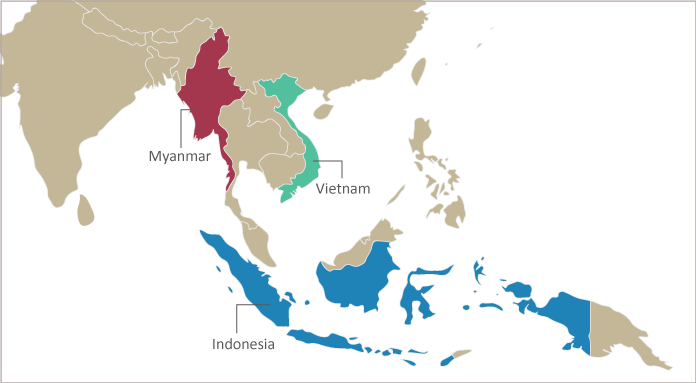Sites and selection criteria
In Indonesia, Myanmar and Vietnam, mortality due to NCDs is reaching 68%–77% of total deaths and the disease burden is increasing. Currently, only one-third of people at risk for hypertension and diabetes are actually reached, leading to a massive unmet need in the three countries.
Reaching all people with risk factors will lead to a dramatic reduction in morbidity and mortality, and has major potentials for economic benefits based on a modest investment in NCD prevention and treatment.
SUNI-SEA research is designed to ensure that the outcome is relevant and inclusive. The selection criteria for research sites had included epidemiological and demographic components. Each country was to select research sites that include both urban and rural settings. The areas should be high risk for NCDs with minority and special populations groups.
The population in the selected regions or provinces should be around 2.5-3 million. The research site should spread into two to three districts within a region.
The three countries have selected areas where there are links with government public health services as well as community groups or community-based health services such as intergenerational self-help clubs (ISHCs) in Vietnam, inclusive self-help groups (ISHGs) in Myanmar and Posbindu in Indonesia.




